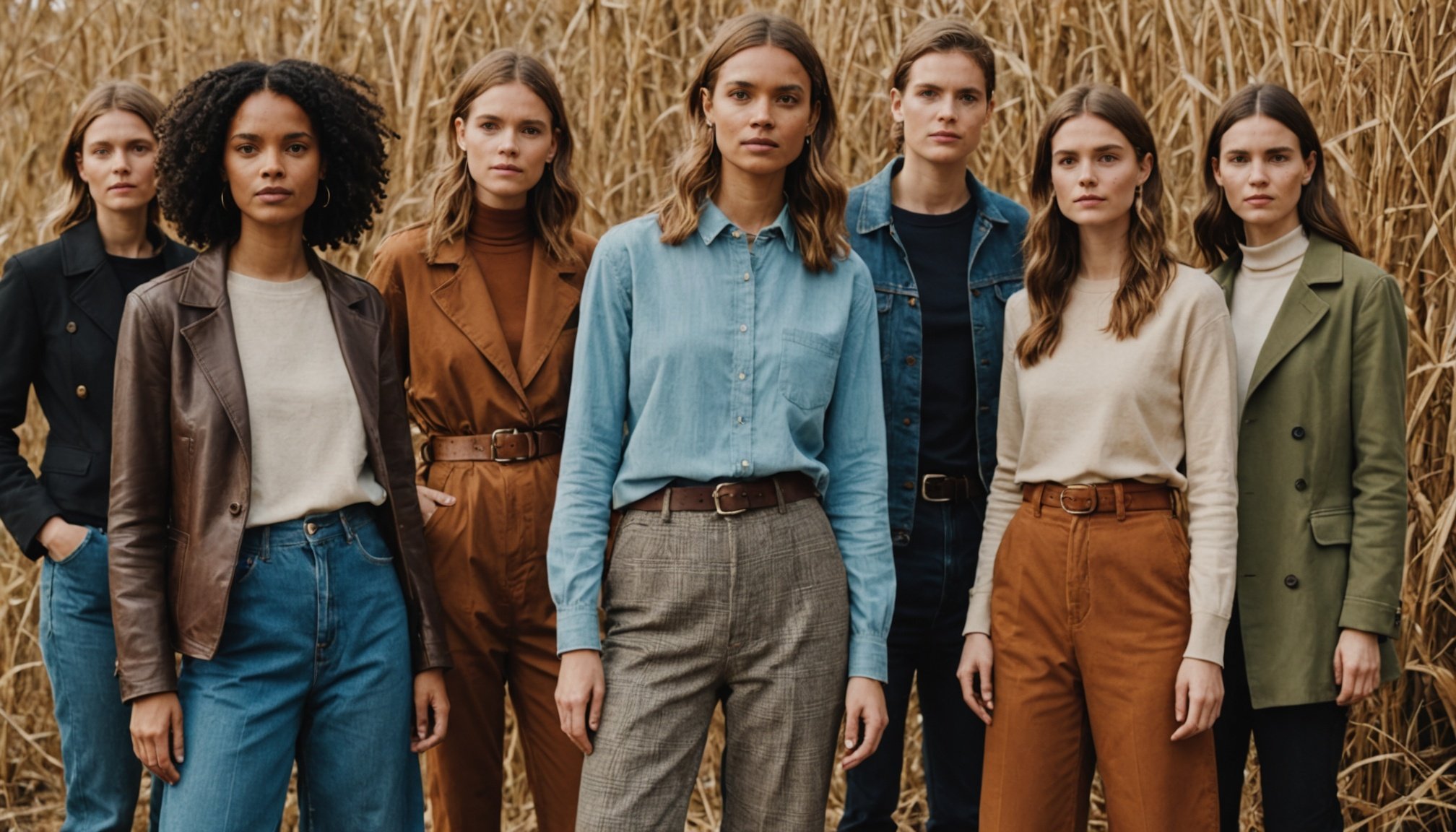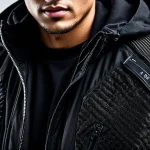Current Trends in Ethical Fashion
The arena of ethical fashion trends in 2023 is evolving rapidly, driven by a surge in conscious consumerism. In the UK, fashion choices now strongly echo a societal pivot toward sustainable style. Consumers are increasingly aware of the environmental and social impact of their purchases, prompting brands to align with these values.
An iconic shift is the rise of circular fashion practices. Gone are the days of fast fashion dominance. Now, many brands promote upcycling and recycling to extend the lifespan of clothing. This approach resonates with consumers eager to reduce their carbon footprint.
In parallel : Top UK Brands Crafting Unique Custom-Made Hats You’ll Love
Transparency in supply chain processes is another notable trend. Ethical fashion brands are making strides by sharing detailed information about the origins and production of their goods. This openness builds trust and fosters deeper brand loyalty.
Moreover, consumer inclinations are shying away from synthetic materials. Instead, there’s an increasing preference for organic, natural fabrics like cotton and hemp, which reduce environmental harm. Ethical fashion trends represent a transformative movement toward sustainability, fundamentally shaping the future of fashion in the UK. This shift indicates a promising trajectory for brands willing to innovate conscientiously.
Also read : Top UK Brands for Personalized Scarves: Your Ultimate Guide to Custom Creations
Popular Ethical Fashion Brands
The ethical fashion landscape is thriving with diverse ethical brands, each contributing significantly to sustainable fashion. Adopting eco-conscious principles, these sustainable fashion labels not only minimize environmental impact but also champion fair labor practices.
Leading Brands in the UK Ethical Fashion Scene
In the UK, certain sustainable fashion labels have emerged as torchbearers of eco-friendly clothing. Brands like People Tree and Stella McCartney epitomize ethical conduct by employing organic materials and supporting artisan communities. These eco-friendly companies seamlessly blend style with sustainability, offering an option for conscious consumers without compromising on trendiness.
Innovations by Trailblazer Brands
Eco-friendly innovation is at the heart of these trailblazers. Pioneering companies like Patagonia are revolutionizing the industry through innovations in recycled textiles and transparent production processes. Their commitment to innovation not only reduces waste but also serves as a model for other ethical brands aiming to expand their sustainability efforts.
Case Studies of Successful Ethical Fashion Brands
Examining specific sustainable fashion labels brings insights into successful strategies. Eileen Fisher, for instance, stands out for its circular supply chain approach that prioritizes recycling and upcycling initiatives. These eco-friendly companies demonstrate how ethical practices can be integrated into fashion, fostering long-term brand loyalty and industry transformation.
Sustainable Materials in Fashion
The fashion industry increasingly embraces the use of sustainable fabrics. These eco-friendly materials play a pivotal role in reducing environmental impact. Some of the most popular choices include organic cotton, hemp, and bamboo. Organic cotton, for instance, is grown without harmful pesticides, making it beneficial for both the environment and consumer health. Hemp, known for its durability, uses minimal water and grows quickly, while bamboo’s rapid regeneration makes it a highly eco-friendly material.
The choice of sustainable fabrics plays a significant role in minimizing pollution and conserving resources. By opting for these materials, brands not only reduce their environmental footprint but also promote consumer well-being by avoiding hazardous chemicals found in conventional textiles. This shift is crucial in addressing the fashion industry’s substantial contributions to pollution and resource depletion.
Emerging innovations in sustainable fabric production continue to revolutionize the industry. Bio-fabricated materials, such as lab-grown leather and recycled fibers, are gaining traction. These advancements not only offer organic textiles with reduced environmental impact but also highlight the potential for technology to drive sustainable growth in fashion. Embracing these innovations is essential for brands aiming to create an eco-conscious and sustainable future.
Consumer Guide to Ethical Fashion
Engaging in ethical shopping can be an empowering step toward promoting sustainability and fairness in the fashion industry. As a conscious consumer, identifying ethical fashion brands and their core values is crucial. Brands that prioritise fair wages, environmental protection, and community development stand at the forefront of ethical fashion.
Begin your journey by evaluating a brand’s ethos through their sustainability reports or code of ethics, which often detail labour practices and eco-friendly initiatives. Certifications play a vital role as well. Look for recognised certifications such as Fair Trade, GOTS (Global Organic Textile Standard), and B Corp status, which authenticate a brand’s commitment to ethical standards.
To make informed purchasing decisions, follow these practical ethical shopping tips:
- Prioritise quality over quantity to reduce waste and ensure longevity.
- Research brands’ supply chains and manufacturing processes.
- Opt for second-hand marketplaces or upcycled products to lessen environmental impact.
Moreover, familiarising yourself with these guidelines can lead to more sustainable choices. By understanding the integral role certifications play, you enhance your ability to support transparent, ethical retailers. As a part of the conscious consumer movement, each purchase signifies a vote for a greener future, aligning personal values with impactful action.
Expert Opinions on Ethical Fashion
The fashion industry insights reveal an increasing focus on the ecological and social responsibilities entailed by production practices. This shift is propelled by sustainability experts and thought leaders within the industry, advocating for innovative, sustainable practices.
Interviews with leading ethical fashion advocates
Interviews highlight many ethical fashion advocates prioritise transparency. Advocates stress the importance of understanding every stage of the production process, from material sourcing to employee welfare.
Analysis of current sustainability trends from experts
Ethical fashion analysis trends indicate a pivot to eco-friendly materials and circular business models. The shift from fast fashion to ethical consumerism is driven by informed consumers who seek sustainable options. Experts commend brands embracing durable, recyclable materials.
Future outlook for ethical fashion in the UK
Forecasts predict ethical fashion will continue to infiltrate mainstream markets in the UK. As sustainability becomes a consumer priority, industry experts anticipate increased accessibility to ethically-produced garments. Such growth promises to redefine fashion as a conscientious endeavour, marrying style with social responsibility.
Resources for Conscious Consumers
Navigating the world of sustainable fashion can be a challenge. Fortunately, several resources for the conscious consumer can make this journey easier.
For starters, numerous ethical shopping platforms provide curated collections of eco-friendly apparel. Websites like Good On You and Eco Warrior Princess offer comprehensive reviews and ratings for brands, ensuring consumers can make informed decisions. These platforms not only spotlight popular sustainable choices but also introduce lesser-known, equally responsible brands.
To deepen your understanding of sustainable practices, several eco-friendly guides are readily available. Examples include Fashion Revolution and Project Cece, which offer educational content on the environmental and social impacts of fashion. Ranging from blogs to documentaries, these guides shed light on important issues, such as fair trade and transparent supply chains.
Moreover, the UK’s proactive community groups and initiatives champion ethical fashion. Love Your Clothes is one such initiative, offering workshops and events focused on extending the life of garments. Engaging in these groups is a great way to learn from like-minded individuals committed to driving change in the fashion industry. Connecting with these platforms and communities empowers consumers to make ethical and informed choices.











